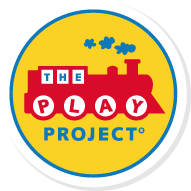*Please note that the following dialogue is based on an encounter between Dr. Solomon and one of his patients. This account is meant to share one family’s individual experience, and is not meant to serve as a general guide for when or how to tell a child about their autism diagnosis. We encourage you to talk with your child’s pediatrician, psychologist, or other health professional for guidance related to this topic.
Just last week, during a return office visit, Mr. and Mrs. Miller (not their real name) asked me if they could talk to me alone, which was unusual. I asked their 9-year-old son, Zachary, who has high functioning autism, to wait in the waiting room.
Me: So what’s up?
Dad: We were wondering if we should tell Zach that he has high functioning autism.
Mom: The other day he asked me: “Why am different? Why am I having trouble making friends?” It broke my heart.
Dad: He wanted to know why he gets picked on more than other kids. We didn’t know what to tell him.
When families approach me with this situation I understand that it presents them with a difficult dilemma: To tell or not to tell.
Parents worry that if they tell their child that he has a ‘condition’ he won’t be able to handle it. They worry: Will we hurt his self-esteem? Do we run the risk of stigmatizing him in the eyes of his peers? What will our extended family think? This is scary territory. Complicating all this is the fact that Zachary is very high functioning. Up until recently he was doing well in most respects, but now that he’s in third grade, his social challenges are beginning to show. He’s missing the subtleties of social interaction. His peers know something is going on. So does he.
If the Millers don’t say anything, they run the risk of Zachary feeling that he’s ‘different’ without an explanation, of Zachary not knowing why other children are avoiding him. Zachary shouldn’t be the last to know. Perhaps worst of all, he might begin to blame himself. His comments are a sign that he’s beginning to feel confused and upset. Now that will hurt his self-esteem.
Me: It sounds to me like you’re ready to tell Zachary. I support being open and honest. If he had diabetes you’d tell him, wouldn’t you?
Dad: We just didn’t know what to say.
Mom: Should we have said something sooner?
Me: If you tell children when they’re too young, they won’t get it. Your timing is actually good. When the child starts asking questions or hinting that they are starting to notice differences, that’s the time. It’s not easy to talk about. I could tell you what I say and you could tell him.
Mom: Would you talk to him? Please, Dr. Solomon. Coming from you might make it better.
Me: I’m happy to talk to him if you’re OK with it. Let’s do it together.
Mom: What about his self-esteem?
Me: When you tell the truth to your child in a way that is supportive and sensitive, you are giving him a message that you trust him, love him, and that he is competent to handle the information. I call it a “message of competence.”
Dad: It’s like we’re saying he can handle it.
Me: It might be hard for him, but it will give him a better understanding of why he’s having problems, and then we can talk about it so he will have support. Not to acknowledge it could be isolating for everyone. Are we ready?
Mom and dad both nod. I call Zachary in. I tell him to give me five and then move before he can slap my hand. I show him a disappearing coin trick that he loves and pull it out of his ear. I talk to him about him about his favorite subject, Star Wars. And then we get down to the business at hand.
Me: So Zach, your mom and dad have been telling me that you’ve been having some trouble this year in school with some of the kids kind of picking on you.
Zachary: Kinda. A little. I try to be nice but they’re mean.
Me: That’s not very nice! What about friends?
Zachary: I got friends.
Dad: He thinks everyone is his friend.
Mom: But Zach, you told me that the kids didn’t want to sit with you at lunch.
Zachary: Don’t say that!
Me: You don’t want your mom to say anything bad, but can I just tell you something? I’m a doctor who sees lots of kids and no matter what kind of problems they have I still like them. (I grab him and give him a couple of noogies. He laughs.). In fact, do you know why you come to see me?
Zachary: To help me?
Me: Right!! Listen Zach, you are getting older and smarter and I want to talk to you about something really important. Can we do that?
Zachary: I guess.
Me: OK. Here’s the deal. You have something called autism. Have you heard of that?
Zachary: I dunno.
Me: Do you know what it is?
Zachary: (Shakes his head.)
Me: Three things. Two good things and only one thing that can be hard. First: Kids with autism are very smart. That’s a good thing. You’re smart. Second: Kids with autism are experts. You know so much about Ninjagos and Star Wars and computers too, right? Right! But the hard thing is that kids with autism don’t always understand other kids. That’s what autism is: trouble figuring out what other kids are thinking. Do you sometimes have trouble with that?
Zachary: Sometimes.
Me: And you know what? It’s not your fault.
Zachary: It’s not my fault?
Me: Nope. It’s just the way your brain works. Come here and let me show you something.
I draw a head with a brain inside and I draw three circles. He gets very interested in my picture.
Me: This is your brain. You were born with this brain. See this circle? This part of the brain is the thinking part. That part is working well. You are smart. This part of the brain is the expert part. You are an expert on the things you like. But this part of the brain in this circle is different than some other brains. You know what part of the brain this is?
Zachary: Autism?
Me: Right, Zach! This is the autism part of the brain. This is the part that has a hard time understanding other kids sometimes.
Zachary: I don’t want to have autism in my brain.
Dad: But, Zach, the doctor said you can do things to help this part of your brain.
Me: That’s why you come here. So we can help you learn how to make more friends and other things too. A lot of other kids have autism and a lot of other kids have parts of their brain that are different.
Zachary: They do?
Dad: What about your friend Zoe?
Mom: She’s got ADHD.
Me: That’s part of her brain too. So, Zach, I just wanted you to know that your autism is not your fault. It’s just how your brain works. Other kids have brains that are different too. It’s something you were born with and you can make it better. Do you understand?
Zachary: I don’t want to have autism in my brain. I want to be like the other kids.
Me: I know. You want the other kids to be your friends. Sometimes it’s hard to have a brain that is different.
Mom: It’s OK, Zach, we love you so much.
Dad: We do, buddy.
Zachary: I got a book on Darth Vadar.
Me: Darth Vadar turns from a good Jedi into a bad guy.
Zachary: He was lured to the dark side by Emperor Palpitine.
It’s hard to know how much Zachary really understood but we broached the topic—To Tell or Not to Tell—for Zachary and his family. This is just the beginning of self-awareness. The future holds many conversations about how Zachary is feeling and what he’s thinking about. If the Millers hadn’t opened up this topic, however, they would have been tip toeing around his diagnosis and closing off opportunities for intimate and important discussions, which ultimately will help Zachary make progress in his development and social skills.
Dad: Thanks, Dr. Solomon, I feel much better.
Mom: Do you think we should say something to Zach’s class?
That’s a topic for another blog post….

